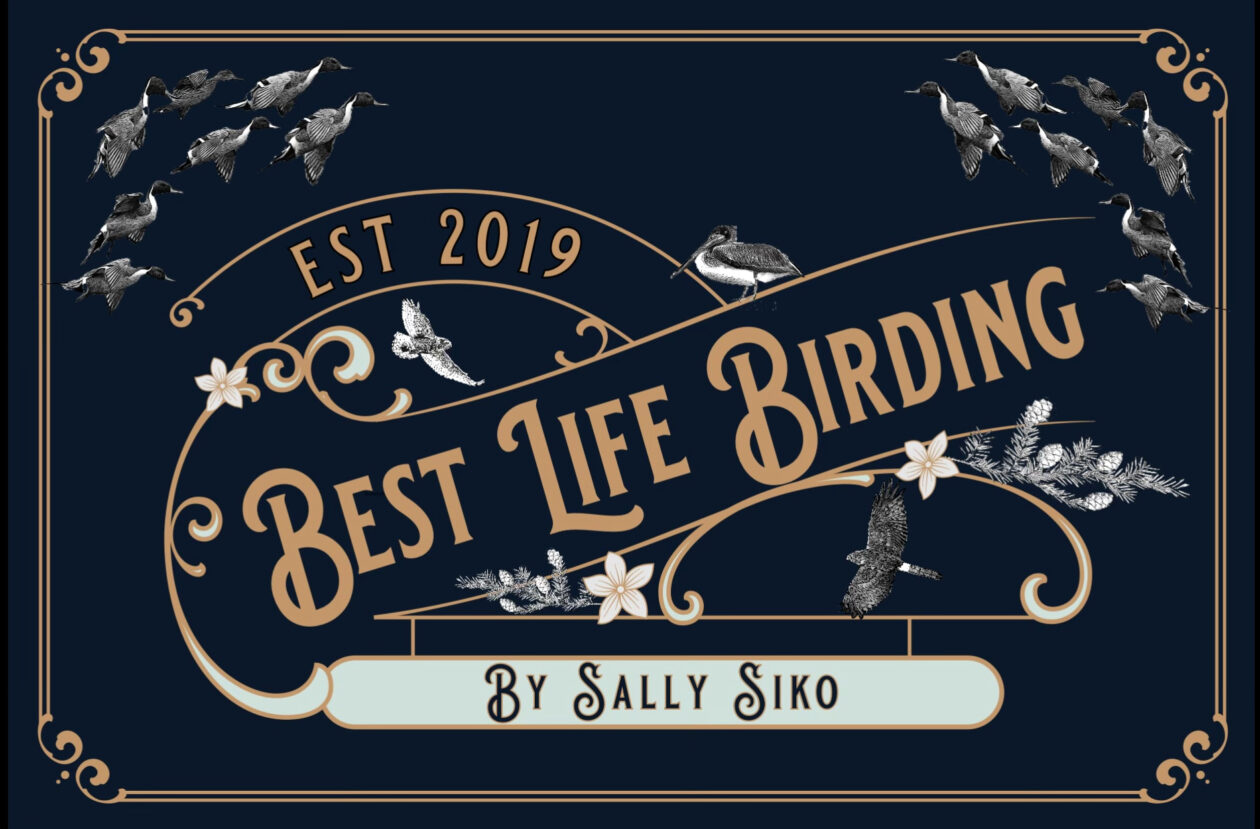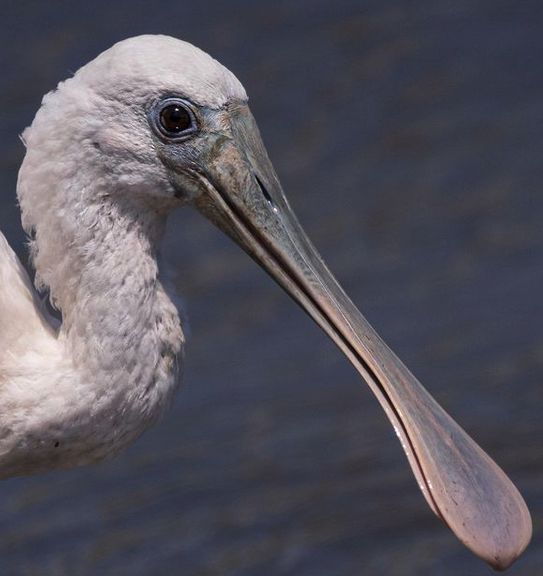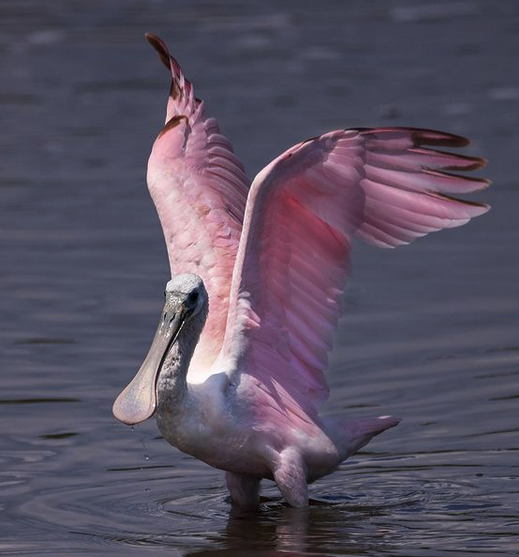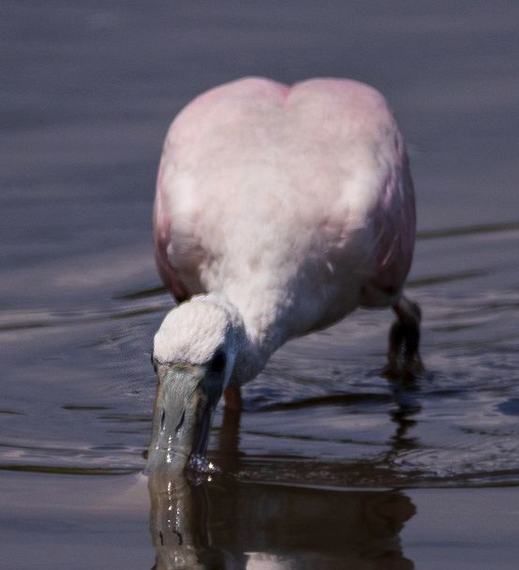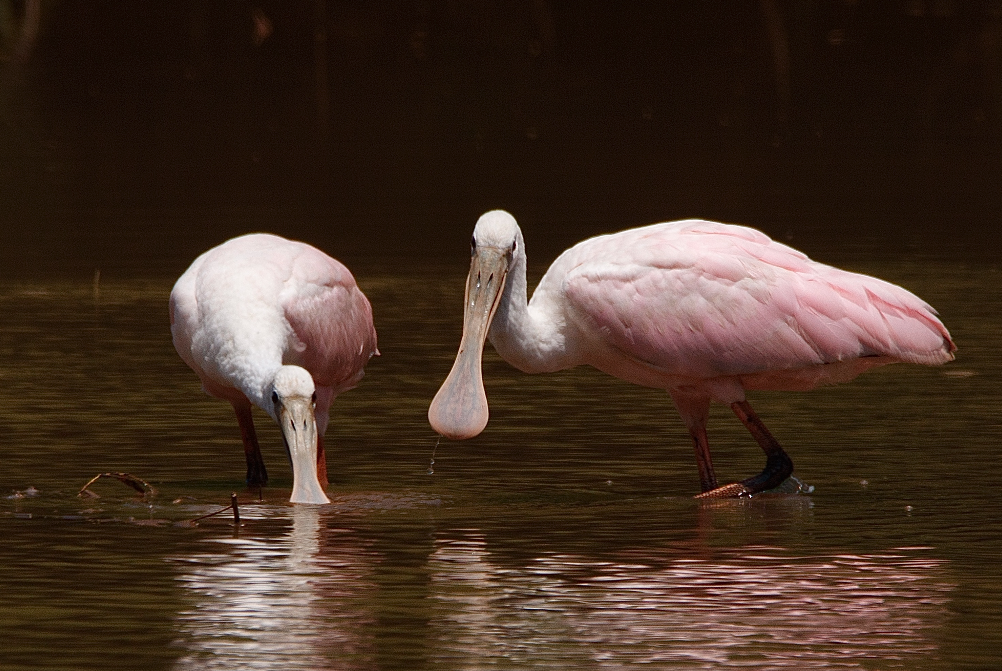By Sally Siko
One of the most unique looking birds we’ve got flying around the Carolinas is the Roseate Spoonbill. With that long flat bill it’s easy to see how these beauties earned their name. I spotted this one last weekend while birding at the Huntington Beach State Park in Murrells Inlet, SC.

Having a “built-in” spoon on its beak can be a big help at mealtime. Spoonbills take advantage of this adaptation with a special feeding style known as “head-swinging.”
They’ll plunge their bill nearly vertically under water and swing it side to side in wide arcs. In this way, they snag a host of small animals from the lake bottom.
Their diet is made up of small fish, crustaceans (especially shrimp and crayfish), insects, molluscs (such as slugs and snails), and other small aquatic animals.


Roseate Spoonbills are an occasional, transient visitor to North Carolina during the late summer along our southeastern coast. If you’d like to have an opportunity to see them sooner rather than later, your best bet is to take a short trip down to coastal South Carolina where they are found throughout the year.
By the way, I’ve added 80 new birding tour dates to my 2024 trip schedule so if you’d like to join me out there in South Carolina to see these beautiful birds for yourself, check the link below for details & booking info!
Photos by @sally_siko of @bestlife_birding on my mighty mirrorless monster, the @canonusa #R5
